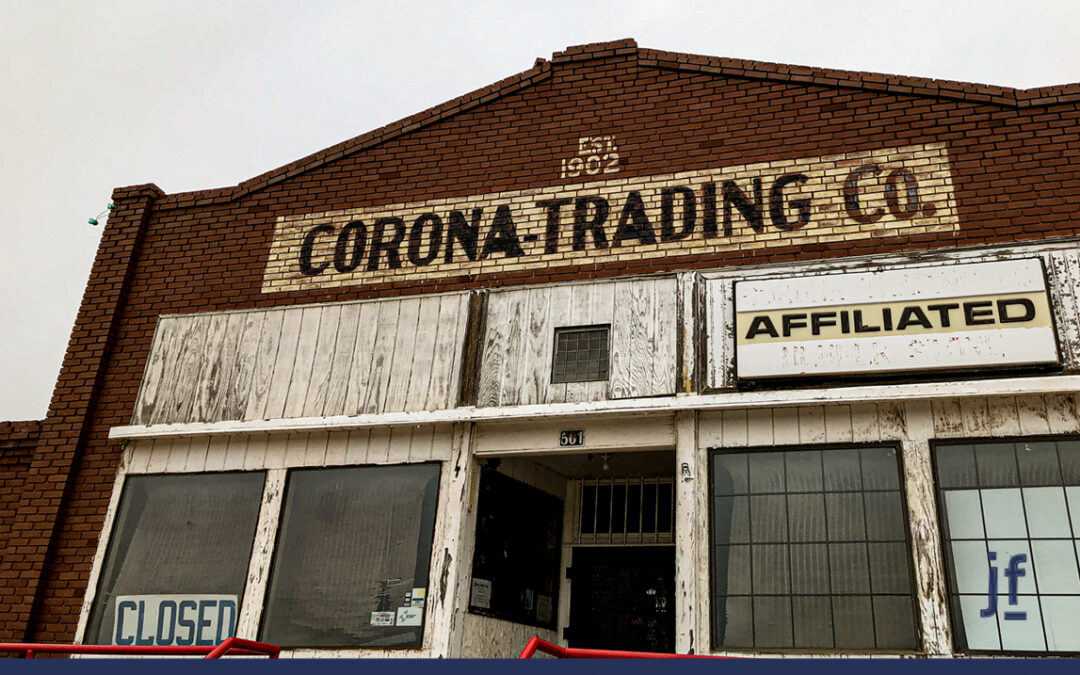Today is March 5, 2021. In just under a week, Americans will have lived with the COVID-19 pandemic for an entire year. For a virus many of us believed would go away if we all just stayed inside for a couple weeks and practiced safety precautions, this blows my mind.
I’m finding myself reflecting on how things were at this time a year ago and the stark contrast between the way it was then and the way it is now. The transition from pre-pandemic life to life in a pandemic was so sudden and severe. It was as if we had collectively gone to see a bleak movie about a deadly plague, only to exit into an alternate reality that was equally bleak, where the movie theater we’d just exited was closed and shuttered, along with the shops and restaurants that once surrounded it. We entered a new stark world where toilet paper, hand sanitizer and Clorox wipes were the most valuable commodities. In this world, people dressed like surgeons to bravely journey outside of their homes in search of “essential” items, trying desperately to avoid each other as anyone could unknowingly be the carrier of an extremely deadly virus called COVID-19. It was as if we had entered The Twilight Zone but in full and vivid, living color.
In hindsight, the innocence of those early days of the pandemic seems a bit ridiculous now. I remember calling this departure from ordinary life “COVID Season”, thinking of it as something that would pass on its own after a few months. A temporary science experiment that would make us all slow down and notice the more important things in life before returning to the rat race of the normal day to day.
And yet, here we are on March 5th, 2021 in this changed world, 116,646,569 confirmed COVID-19 cases and 2,590,945 deaths–over half a million in the U.S. alone. Two and a half million people are now dead who were alive in 2019. Numbers this large have a way of desensitizing us to the reality that each one represents a human being no different than you or me with a birthday, a family, dreams and fears, a human being who suffered and died–while the virus continues to find a way to rampage, mutate, spread and infect new victims.
Yes, the vaccine roll out is encouraging. But is to think the vaccine will make everything better, just more of that innocent, naive hope we shared at the beginning of this?
It can be hard to find a high degree of confidence under such trying and uncertain conditions. And yet, I can’t stop thinking about a movie I watched in the early months of this pandemic. “The Shawshank Redemption” gave me a perspective then that has only evolved the longer we deal with COVID-19. The movie centers around Andy Dufresne, a successful banker who suddenly finds himself wrongfully convicted for the double murder of his wife and her lover, and focuses on his years serving back to back life sentences within the brutal, forlorn walls of Shawshank State Penitentiary.
Andy’s introduction to Shawshank State Penitentiary proved savage enough to diminish the soul of even the most radiant and resilient person. But Andy knew that so long as he could hold onto hope, even a glimmer of it, he could endure whatever prison life forced upon him. Hope comes, at first, in the form of a simple rock hammer, procured by a fellow inmate known as Red, the guy who knows how to get things. While the rock hammer would ultimately serve as Andy’s literal salvation, there’s no way he could have foreseen this possibility when he placed his order with Red. Andy’s initial intention for the hammer was only to carve simple chess pieces from rocks found in the prison yard. A task he intended to perform to keep his mind occupied and focused on the world beyond the walls of his prison cell.
“Hope is a good thing. Maybe, the best of things. And no good thing ever dies.”
Andy Dufresne
As the years wore on, Andy continued to take action in ways that gave him a sense of purpose. His fulfillment came from making life better for his fellow inmates–helping them to feel normal again if only for a short while. Be it ice cold beer procured for his peers in exchange for tax advice given to the prison staff, to the best damn prison library built only because of his persistence and unwillingness to accept defeat. All building that library took was sending one unanswered letter each week to the State Senate for six years before they finally responded with funds and donations, just to get him to stop sending the letters. Their strategy didn’t quite go as planned however, because, from that point on Andy redoubled his efforts and sent two a week.
As Andy’s actions illustrate, just because our lives change in drastic ways we wouldn’t have chosen for ourselves, it doesn’t mean we have to resign ourselves to misery and hopelessness or give up on the goals and dreams we once held dear. Our confinement in this pandemic will not last forever.
Of course, Andy’s biggest feat was the long game he played for nineteen years. As he gained goodwill from prison staff and convict alike, he slowly and methodically chipped away at the wall of his prison cell with that smuggled rock hammer. His escape was the reward for his years of confronting his grim challenges with a steady and hopeful determination.
No matter the nature of our circumstances, we have a simple choice. In the words of Andy Dufresne, we can either get busy living or get busy dying. Even though it can at times feel utterly painful and overwhelming, we must not lose ourselves in the despair and difficulty of this pandemic. We have the profound opportunity to choose to maintain our humanity, even if a shred of hope the size of a rock chip is all we can manage to begin with. Through not only acceptance, but a vision of a kinder tomorrow, we can learn to function within the confines of this pandemic and persevere through it.
The world may never go back to the way it was pre-2020. Andy’s world, once he escaped, was never the same as it had been before his ordeal. However, it was all the sweeter because of the person he had become within the walls of The Shawshank State Penitentiary.
The thing about perseverance is it’s often not rewarded right away. It invites you and me to use our desire for something greater to keep us moving forward. We don’t have to set our sights on going back to normal. We can go well beyond it. We can turn defeat into triumph. There’s still hope for our Happily Ever After…

JASON FREEMAN is a Professional Speaker and the proud owner of a Speech Impediment. He is also the author of “Awkwardly Awesome: Embracing My Imperfect Best” and a Perseverance Coach.
He excites and encourages his audience to break through the barriers of their own limitations using a method he created, called “Doing your Imperfect Best ™”.
His Imperfect TEDx Talk can be viewed here.


Recent Comments